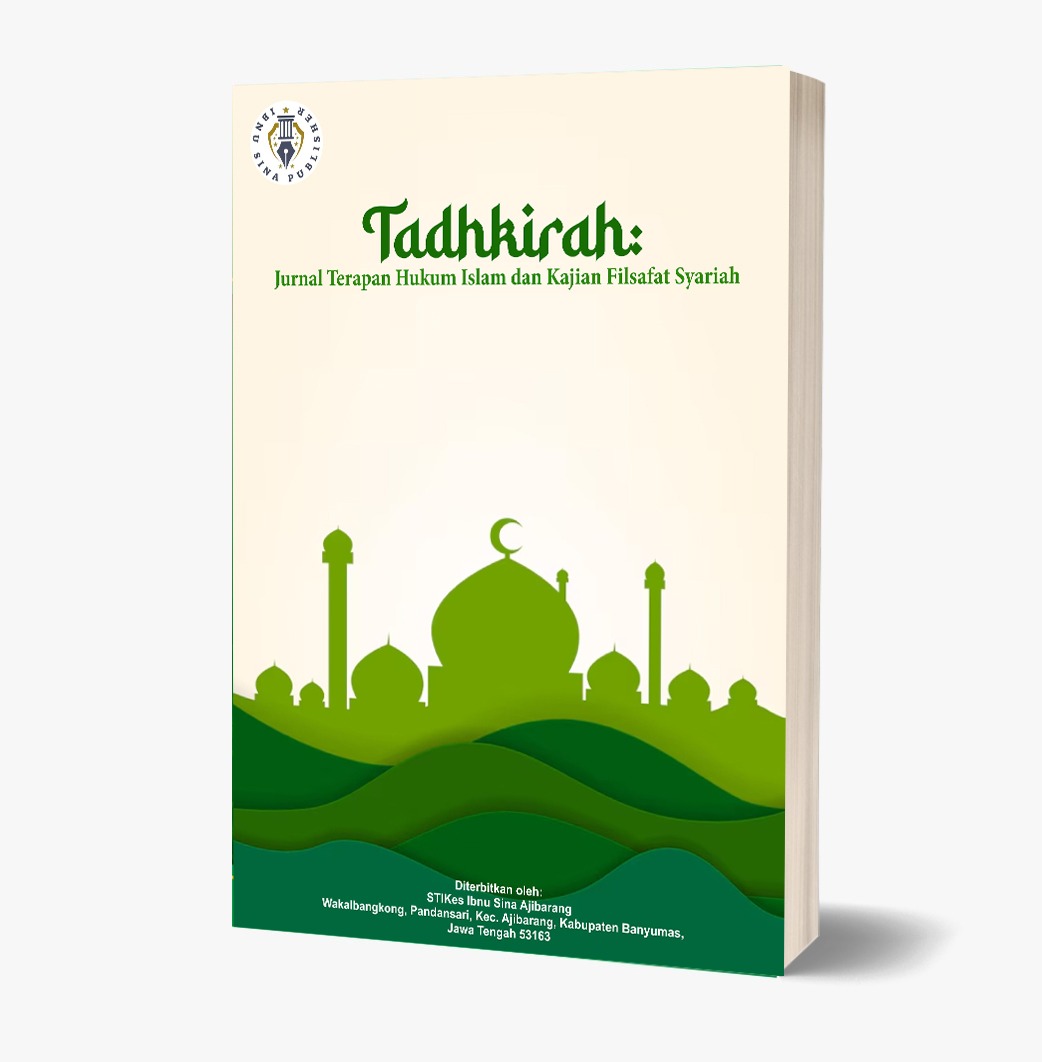Pembagian Harta Warisan Sebelum Orang Tua Meninggal
Studi Kasus Masyarakat Muslim Kecamatan Medan Tembung
DOI:
https://doi.org/10.59841/tadhkirah.v2i3.222Keywords:
Customary law, Hibah, Inheritance distribution, Islamic law WasiatAbstract
This study discusses the practice of inheritance distribution before the parents' death among the Muslim community in Medan Tembung District. This phenomenon reflects the dynamic interplay between Islamic law, customary law, and social practices in the division of inheritance. According to Islamic law, inheritance can only be distributed after the death of the testator. However, in Medan Tembung, early distribution is often carried out to avoid conflicts among heirs. This research uses a socio-legal approach with an empirical method based on field observations. The findings show that the community applies three inheritance systems: individual, matrilineal, and parental/bilateral. The distribution is conducted through hibah (grants) or wasiat (wills), typically documented in a written statement and often legalized by local community leaders or notaries. Cultural factors, education levels, and legal awareness significantly influence the variation in distribution systems. Most families still distinguish between the inheritance shares of sons and daughters, with sons typically receiving a larger portion. Community leaders play a vital role in mediating disputes, and if consensus is not reached, legal channels are pursued. These findings highlight the importance of legal education and the need for synergy among religious law, customary practices, and state law to ensure fairness in inheritance distribution.
Downloads
References
Ali Hasan, M. (1973). Hukum warisan dalam Islam. Bulan Bintang.
Anshori, A. G. (2002). Hukum kewarisan Islam di Indonesia: Eksistensi dan adaptabilitas (1st ed.). Ekonisia.
Ash-Shiddieqy, H. (1973). Fiqhul mawaris. Bulan Bintang.
Ash-Shiddieqy, T. M. H. (2000). Tafsir Al-Qur’anul Majid An-Nuur. Pustaka Rizki Putra.
As-Sabuni, M. (1987). Al-Mawarisu fi al-Syari’ah al-Islamiyah ‘ala Dhawil Kitabi wa as-Sunnah (M. S. Yahya, Trans.; 3rd ed.). CV. Diponegoro.
As-Sidiq, H. (1979). Fiqh Mawaris hukum waris dalam Syariah Islam. Bulan Bintang.
Departemen Agama RI. (1971). Al-Qur’an dan Terjemahnya. PT Karya Toha Putra.
Hadikusuma, H. (2003). Hukum waris adat. Citra Aditya.
Hazairin. (1968). Hukum kekeluargaan nasional. Tintamas.
Jainuddin. (2020). Pembagian harta warisan: Telaah pembagian warisan oleh pewaris kepada ahli waris sebelum pewaris meninggal pada masyarakat Bima. Sangaji: Jurnal Pemikiran Syariah dan Hukum, 4(2), 298–313.
Manan, A., & Fauzan, A. (2002). Pokok-pokok hukum perdata. PT. Raja Grafindo Persada.
Parman, A. (1995). Waris dalam Al-Qur’an: Suatu kajian hukum dengan pendekatan tafsir tematik (1st ed.). PT Raja Grafindo Persada.
Rofiq, A. (2002). Fiqh Mawaris (4th ed.). RajaGrafindo Persada.
Rukiah, & Herman. (2011). Penyelesaian sengketa dalam kewarisan adat dalam perspektif hukum Islam. Diktum: Jurnal Syariah dan Hukum, 9(2), 113–131.
Shihab, M. Q. (2002). Tafsir Al-Mishbah. Lentera Hati.
Soekanto, S. (1981). Hukum adat Indonesia. Rajawali.
Wijaya, H., Jannah, S., Aprianti, F., & Hasmira. (2021). Pembagian harta warisan sebelum pewaris meninggal dunia dalam tinjauan hukum Islam (Studi Kasus di Desa Gentungan Kecamatan Bajeng Barat Kabupaten Gowa). Bustanul Fuqaha: Jurnal Bidang Hukum Islam, 2(3). https://doi.org/10.36701/bustanul.v2i3.403

















